
This article is more than
7 year old
WASHINGTON — It was an easy, good summer for Brett Kavanaugh. He was nominated for the Supreme Court by President Trump in July. His credentials — Yale, coaching girls’ basketball, feeding the homeless — were repeated with such breathless reverence in the halls of Congress and on cable news that they came to seem like the feats of Hercules. He had the look. He had the votes, pundits said, including from some red-state Democrats. The confirmation would be a breeze.
But now it is just about fall, and Kavanaugh’s nomination is in peril. The allegation that he sexually assaulted Christine Blasey Ford when they were both high school students in the Washington, D.C., area in the 1980s threatens to end in ignominy his meticulous career path. Should Kavanaugh withdraw his nomination in the face of Senate support that has begun to show signs of erosion, the move would represent a remarkable defeat for an administration that, for all its daily chaos, has been able to tout the appointment of conservative judges as one of its unalloyed successes.
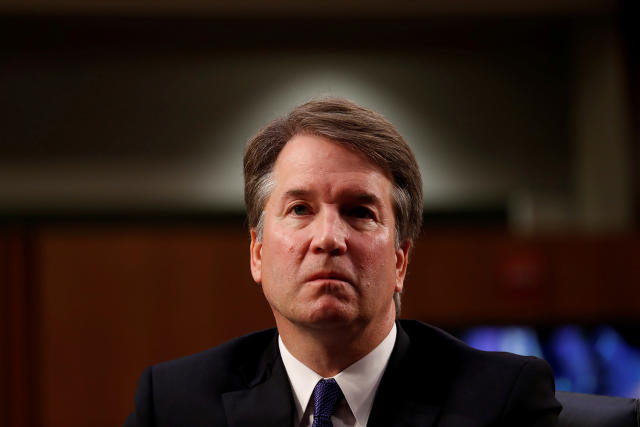
The allegations were first made public in a statement from Sen. Dianne Feinstein, D.-Calif., last Thursday. That statement did not reveal Ford’s name or the nature of her accusations. But the story bloomed over the weekend, so that by Monday morning the headlines blared that Ford, 51, a professor of clinical psychology at Palo Alto University, had written to her congresswoman, Rep. Anna Eshoo, about the alleged assault. In that letter, Ford said that when they were teenagers, Kavanaugh and a friend (later identified as Mark Judge) drunkenly forced her into a bedroom during a party, where Kavanaugh tried to assault her. “I feared he may inadvertently kill me,” she wrote.
But Monday did not unfold as many expected it would, with President Trump insulting Ford on Twitter, calling her credibility into question. Instead, he tweeted about steel tariffs and the investigation into his campaign’s possible collusion with Russia. It was left to senior adviser Kellyanne Conway to tell reporters gathered outside the West Wing, “This woman should not be insulted, and she should not be ignored.” That seemed to dash any hopes that the allegations would be immediately dismissed as a desperate attempt to prevent a conservative majority in the Supreme Court.
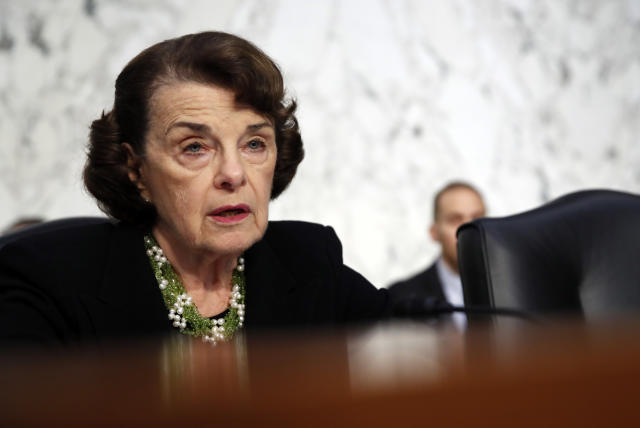
Kavanaugh, meanwhile, issued a statement of his own. He said the allegation was “completely false.” He did not name Ford, claiming that he had “no idea who was making this accusation” until she revealed herself. He promised that he would “talk to the Senate Judiciary Committee in any way the Committee deems appropriate,” ending with a reminder that the accusations were 36 years old.
But with the midterm congressional elections looming — now only 50 days away — and the Democratic Party fielding a record number of female candidates, the White House could not be thrilled at the prospect of a televised hearing in which the lurid details of a potential rape would be litigated before the American public. So while plenty of conservatives issued statements of support for Kavanaugh — some going so far as to impugn Ford’s motives — there was, at least for much of Monday morning, an unmissable silence from 1600 Pennsylvania Avenue.
Despite whatever the White House says or doesn’t say, Kavanaugh’s fate rests with several senators. Who they are could have been easily guessed by anyone strolling through the Senate office buildings on Capitol Hill. There were reporters and photographers slumped around the door leading to the offices of Sen. Susan Collins, the moderate Republican from Maine who is viewed as a potential “get” for the anti-Kavanaugh forces. A young staffer explained to the waiting scrum that it might be awhile before Collins spoke to them. The reporters remained as they were, resigned to waiting. There were similar vigils at the offices of Sen. Lisa Murkowski of Alaska, another Republican given to occasional shows of independence, and Sen. Chuck Grassley of Iowa, who chairs the Senate Judiciary Committee. Before Ford’s allegation emerged, Grassley had wanted the committee to vote on Kavanaugh’s nomination Thursday, sending it to a full Senate vote.
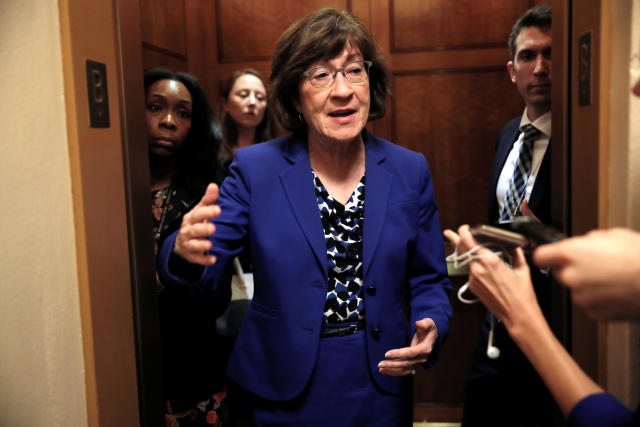
The reporters waited. The senators stayed in their chambers. There was, for them, no obvious advantage in commenting on a rapidly developing story about a toxic allegation. Almost any discernible position was bound to cause outrage.
Kavanaugh, meanwhile, was seen entering the White House at around 10 a.m. There, he met with chief White House counsel Donald McGahn, who had promoted his nomination to the Supreme Court, even as Senate Majority Leader Mitch McConnell had reportedly pushed for a nominee with a smaller judicial and political footprint. (In addition to his lengthy record as a judge, Kavanaugh was George W. Bush’s staff secretary and assisted in Ken Starr’s investigation into Bill Clinton.) According to the Washington Post, Trump was not involved in the discussions. For once, his advisers appeared to have prevailed. As one of them told the Post, “The president thinks it’s rough for Kavanaugh, and he’d decry the process as disgusting if he withdraws, but he’d nominate a carbon copy of Kavanaugh in a second if he goes down.”
By the time the lunch hour came around, some signs of clarity appeared about how the nomination would proceed. “Professor Ford and Judge Kavanaugh should both testify under oath before the Judiciary Committee,” Collins said in a tweet. Murkowski sounded a similar note in her statement: “Despite the length of time since the alleged incident, Dr. Ford’s allegations should be heard, and she must have an opportunity to present her story before the committee under oath, with Judge Kavanaugh having the opportunity to respond under oath as well.”
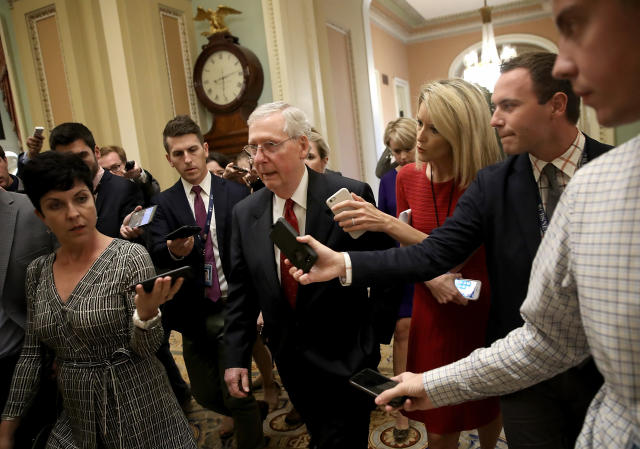
Meanwhile, McConnell lamented that Democrats had forgone “the standard, bipartisan process.” Maybe so, but that hadn’t bothered him in 2016, when he refused to consider President Barack Obama’s final Supreme Court nominee, Merrick Garland. John Cornyn of Texas, the Senate GOP’s second-in-command and a member of the Judiciary Committee, lambasted Democrats for having “egregiously mishandled” the Kavanaugh nomination — presumably by making the accusations against him public so late in the process. Cornyn suggested that Ford’s charge was nothing but “a smear.”
As did many Trump supporters on social media. Some touted poor student ratings for Ford, failing to notice that they had found an altogether different California professor with a similar name. Others pointed out that Kavanaugh’s mother, also a judge, had been involved in foreclosure proceedings against Ford’s parents. This was true, but this was not revenge served cryogenically cold: Her ruling had been for Ford’s parents, not against them.
Abortion rights activists saw their first real opportunity to defeat Kavanaugh’s nomination. They had been trying all summer, depicting him as overly political and insufficiently honest. But none of that seemed enough to sink his nomination in the GOP-controlled chamber. Ilyse Hogue, president of NARAL Pro-Choice America, said Kavanaugh showed a “complete disregard for women and our bodily autonomy.” Another name was uttered nearly as much as Kavanaugh’s: Anita Hill. In 1991, she had come forward to accuse Supreme Court nominee Clarence Thomas of sexual misconduct, only to have her own integrity questioned.
The solution, as far as the activists were concerned, was to stop the once-inexorable nomination from moving forward with such speed. Vanita Gupta, who heads the Leadership Conference on Civil and Human Rights, called on the Senate Judiciary Committee to “immediately halt the nomination.” She called for “a fair, comprehensive, nonpartisan investigation of Kavanaugh,” adding: “Senators and their staff are not a substitute for this process.”
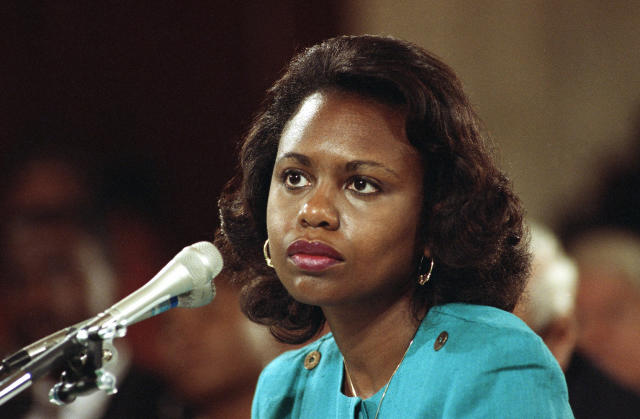
Whatever chances remained that Kavanaugh could slip through the Senate Judiciary Committee relatively unscathed vanished when Grassley announced that there would be a fresh round of hearings on the nomination next Monday. These will involve a full public airing of the allegations against Kavanaugh, a perilous prospect for a nominee already unpopular with the American public. The White House will probably do what it can to avoid that scene. That could include pushing aside a nominee who, all summer, seemed invincible. Then fall came.
_____
More Yahoo News stories on the Supreme Court: